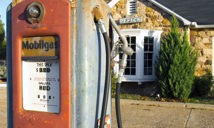It's pretty clear that a car or truck that uses less fuel will cost you less to fill up. But now automakers are claiming that higher fuel efficiency standards make for more expensive cars, hurting buyers (and new car sales). But is that really the case? The Consumers Union, the policy and action division of Consumer Reports, has issued a report on the contentious topic, and they say that the answer is no.
The US Environmental Protection Agency finalized their 2025 fuel economy standards earlier this year. After that announcement, the Auto Alliance, an advocacy group of 12 major automakers including General Motors, Ford, BMW, Toyota, and Volkswagen, sent a letter of complaint to the EPA, claiming that the higher costs of the standards would raise car prices, causing "up to 1.1 million Americans to lose jobs due to lost vehicle sales," as well as impacting low-income buyers who could no longer afford new cars. Longtime consumer advocates the Consumers Union knew that spending less on fuel saved money at the pumps, but wanted to verify the new car costs. And what they found was a surprise.
The Consumers Union report started with a look at the US Consumer Price Index. It's a measure of how the price of a basket of household items changes over time. The CPI for all items in 2016 was 1.5 times what it was in 1997. Meaning that households are spending 50 percent more for what they need than they were 20 years ago. The CPI for new cars and trucks, however, is virtually unchanged. New cars and trucks cost the same as they did in 1997.
The range of prices has increased, as there are now far more high-end cars, SUVs, and pickups, but the average isn't changed. Adjusted for 2015 US dollars, a 2015 Cruze L at $16,170 was within $7 of a new 2005 Honda Civic DX. The high-end price increases show that luxury vehicles have gotten fancier, with more bells and whistles, but the fact that entry-level new cars haven't gotten more expensive shows that more fuel efficient cars haven't impacted costs to the consumer.
So cars haven't gotten more expensive like automakers claim. Have they gotten more fuel efficient? CU says yes. Average fuel economy has improved from 11.8 L/100 km in 2005 to 9.4 in 2015. They claim that the increase has saved low-income households an average of $235 US per year, with an average household saving $523. They also found that even if consumers can't afford the cars new, that they will still benefit from improved economy when they are able to purchase the cars used.
In short, the Consumers Union has found that low-income households, the ones that the Auto Alliance claims will suffer from higher fuel-economy standards, actually benefit from better fuel economy. Not only do consumers benefit at the pumps, but new cars haven't gotten more expensive over the last 20 years despite safety, performance, content, and efficiency increases. Meaning that they have benefited in the showroom as well.

